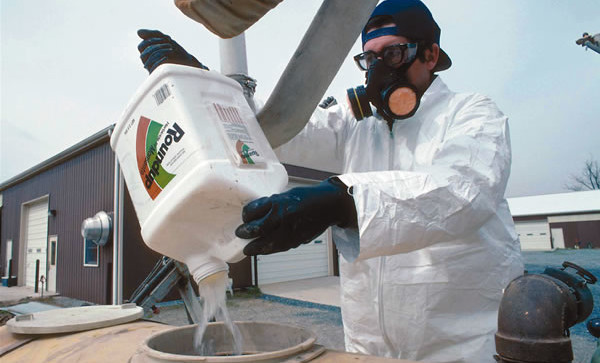Conflicts of interest have already plagued the newly released glyphosate risk assessment by the FAO/WHO Joint Meeting on Pesticide Residues (JMPR), as the Guardian reported on Wednesday, however, the total irrelevance of the report to modern science and to Europe has now also come into focus.

Irrelevant for Modern Science
The JMPR announced on Monday that glyphosate is “unlikely to pose a carcinogenic risk to humans from exposure through the diet”.
It may however surprise readers to find out that this announcement was made without one single regulatory or industry glyphosate study ever having been performed at a real-life dietary exposure level (under 3 mg/kg body weight/day).
This is a huge hole in the risk assessment process for glyphosate, as low levels of the herbicide may hack hormones even more than high levels and hormone hacking chemicals are often carcinogens.
Industry funded science from the dark ages suggested that the higher the dose of a chemical the more dangerous it was. However, modern independent science has discovered that many toxic chemicals have as much or even more of an influence on our health at low doses– these chemicals are known as hormone hackers (endocrine disruptors).
A study from March 2015 stated that the health costs to the European Union of just some hormone hacking chemicals, in connection with a subset of illnesses known to be linked to hormone interference, is over $ 150 Billion per year! The study stated that lower IQ, adult obesity and 5% or more of autism cases are all linked to exposure to endocrine disruptors.
Glyphosate is likely to be one of these hormone hacking chemicals at real-life exposure levels down to 0.1 PPB or below according to independent science.
Regulators and the chemical industry have simply not studied the toxic effects of glyphosate at real-life exposure levels and thus should not be making claims on the harm from or safety of glyphosate exposure through diet!
Glyphosate and Endocrine Disruption Box
Glyphosate and endocrine disruption
How safe are “safe” levels of glyphosate?
Unsafe at any Dose? Diagnosing Chemical Safety Failures, from DDT to BPA
Irrelevant for Europe (Source: gmwatch.org)
Firstly, the JMPR’s verdict does not in any way contradict the verdict of the IARC last year which stated that glyphosate is a probable carcinogen.
JMPR was only addressing risk, the likelihood that actual exposures to glyphosate will cause cancer, and specifically through diet. IARC, for its part, also addressed risk, because it considered that glyphosate causes cancer at real-life exposure levels. But in addition it addressed hazard, the potential for glyphosate herbicides to cause cancer due to their intrinsic properties.
Second, and most importantly, Europe’s pesticide Regulation 1107/2009 is hazard-based, not risk-based, when it comes to carcinogenicity. If a substance is potentially carcinogenic, it is a priori not allowed to be approved – subject to two narrow exceptions (negligible exposure or serious danger to plant health that cannot be controlled by any other means).
No arguments are allowed along the lines that the doses people are exposed to through diet or by any other route are probably safe.
This means that, based on IARC’s hazard-based verdict and under Regulation 1107/2009, and quite regardless of JMPR’s verdict, glyphosate should not be marketed at all in Europe.
JMPR does not say that glyphosate is not carcinogenic (hazard-based assessment), but that ”glyphosate is unlikely to pose a carcinogenic risk to humans from exposure through the diet”.
That is a risk-based statement, and moreover only deals with risks via diet.
So the JMPR statement is not relevant to the question of whether the substance is carcinogenic or not. If glyphosate is carcinogenic, it is not allowed to be approved in Europe and EU member states should vote against its re-approval. End of story.


















